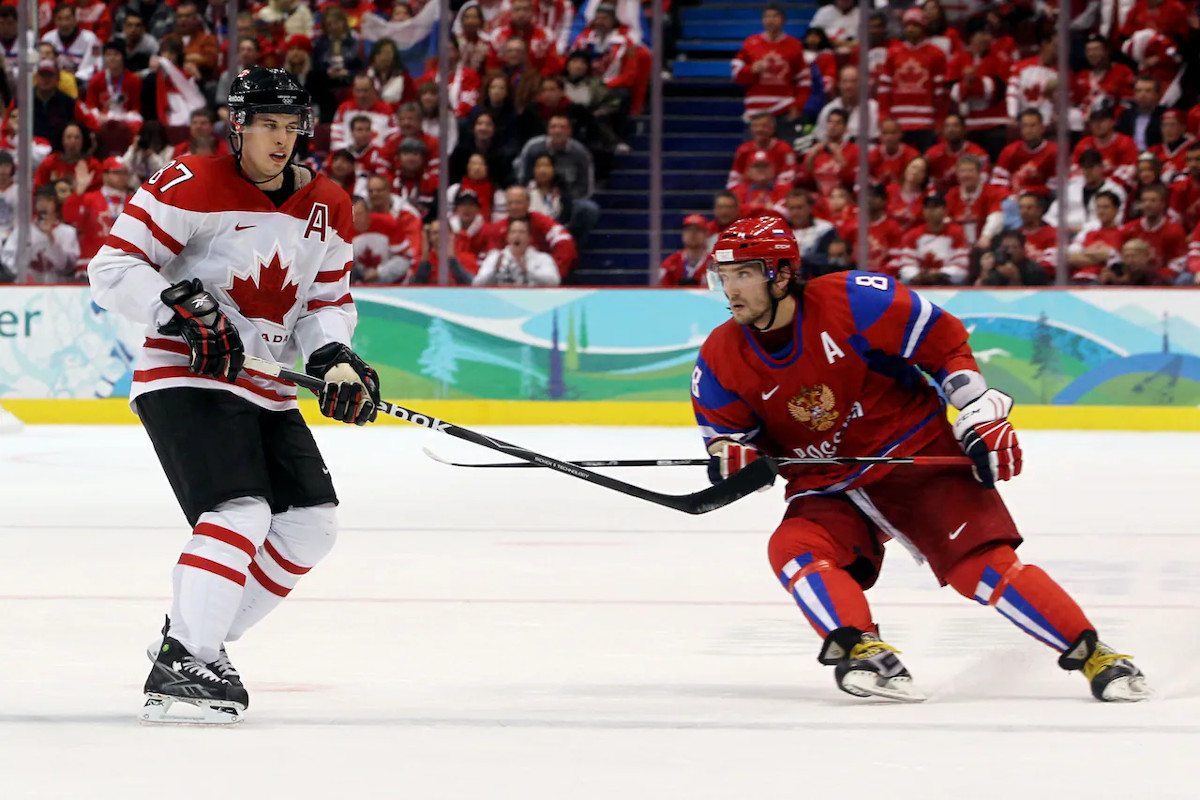The NHL and NHLPA have reached an agreement that will allow NHL players to compete for their countries in the 2022 Winter Olympics in Beijing, China.

The agreement will allow the world’s top male hockey players to compete against each other at the Olympics for the first time since 2014, as the NHL opted out of participation in the 2018 Olympics.
NHLPA pushed for Olympic hockey return
The NHL and NHLPA negotiated their return with the IOC and the International Ice Hockey Federation (IIHF). The return began to take shape in 2020, when players successfully placed a return to Olympic hockey into their collective bargaining agreement with the NHL. However, it was contingent on an agreement with the international organizations.
Under the deal, the NHL secured expanded media and advertising rights around Olympic hockey. But the NHL didn’t have leverage to get much else out of the deal, as the NHLPA strongly favored a return.
“As any Canadian kid, your dream is to play in the NHL, and then your dream is to play for Team Canada in the Olympics,†Connor McDavid told reporters last week, speaking of the possibility of an agreement. “I’m certainly looking forward to having the ability to chase down a spot and hopefully make the team and represent my country at the Olympics.â€
The NHL was less enthused about the prospect of sending its players away in the middle of the season. The season will break rom Feb. 3 through Feb. 22 in order to host the All-Star break and then accommodate the Olympic hockey tournament.
COVID-19 issues still a concern
The league also expressed concerns over the evolving COVID-19 situation. The NHL and NHLPA can still opt out if the coronavirus situation worsens or causes too many cancellations early in the NHL season, meaning the league needs the break in order to make up time.
“You know what the League’s traditional and historical position has been on the Olympics,†NHL Deputy Commissioner Bill Daly said in June. “We remain of that view, and in fact, with the future Games in Beijing and the continued uncertainty with [COVID-19] and the Games being halfway around the word, [this is] not necessarily an ideal Games to elect to go to. Having said that, we negotiated in good faith with the Players’ Association last summer. We agreed that if the conditions were right and we could reach agreement on all the material issues that we would commit and support going to the Olympics.â€
Canada will likely enter the 12-team tournament as the favorite to win gold. The Canadians won gold in 2002, 2010, and 2014. No other nation can boast the combination of talent and depth that Canada brings to the ice.
That said, any of the traditional “Big Six†nations could potentially win gold. Those include the United States, which has won silver twice in the NHL era, along with 2006 champions Sweden, 1998 gold medalist the Czech Republic, Russia, and Finland. Interestingly, all three sets of regional rivals have been seeded into the same groups: Canada and Team USA in Group A, Russia and the Czech Republic in Group B, and Finland and Sweden in Group C.
Automatic qualifiers Germany and Switzerland could also be dark horse contenders for a medal. Slovakia, Latvia, and Denmark made the field via Olympic qualification tournaments, while China will also field a team as the host nation.











